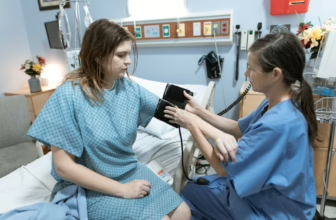Trust doesn’t happen automatically in healthcare. It’s something that’s built through real actions, day after day. Patients pay close attention to how they’re treated, whether they’re being heard, and how seriously their concerns are taken. In a field where people are often scared or unsure, trust makes every part of the experience feel more manageable.
For healthcare professionals, trust starts with consistency and grows through the small, thoughtful choices they make. It shows up in how they speak, how they respond in tough moments, and how they show respect. In places where systems sometimes feel cold or rushed, the right actions stand out, and patients remember them.
Supporting Public Health Initiatives
Public health professionals play a different role now than they did years ago. They aren’t just working behind the scenes—they’re in the field, talking to residents, setting up community health programs, and helping people understand how their environment, habits, and access to care shape their well-being. Whether it’s organizing a mobile health clinic, helping coordinate vaccine rollouts, or tackling food insecurity in a specific neighborhood, these actions show real care and concern for the bigger picture.
To keep up with these shifting responsibilities, professionals often look for targeted training that fits around busy schedules. For this purpose, a public health post baccalaureate certificate online helps them stay current without putting work on hold. The online format works well for those who are already in the field, allowing them to build on their knowledge while applying what they learn in real-time. Trust grows when professionals know how to adapt to changing public needs, and that takes both experience and ongoing learning.
Speaking Up for Patients
In any system, there are moments when things don’t work the way they should. Maybe a patient’s insurance is denying something necessary, or a scheduling issue is causing delays in care. When healthcare professionals speak up—whether it’s calling an insurance rep, advocating for a treatment exception, or alerting a supervisor—they show the patient that they’re not just there to follow steps. They’re there to help make things right.
That kind of advocacy isn’t always easy, especially in places where processes are strict or time is limited. But when it happens, patients notice. They feel like someone is actually in their corner. It sends a message that their situation matters and that someone is willing to go beyond the basics to support them.
Explaining Without Rushing
Medical settings can be overwhelming, especially when there’s a lot of unfamiliar language. Healthcare professionals who take the time to break things down without rushing help patients feel more in control. Whether it’s explaining a diagnosis, walking through the next steps, or reviewing instructions after a visit, those extra few minutes matter more than most people realize.
When professionals slow down and speak in a way that feels human and relatable, trust builds quickly. Patients leave feeling informed instead of confused, and they’re more likely to follow through on care because they actually understand what’s happening.
Staying Calm Under Pressure
Healthcare professionals face pressure constantly. Emergencies, back-to-back patients, and unexpected changes all demand quick thinking. In those moments, the way someone carries themselves says a lot.
Staying calm, even when things get hectic, helps everyone else in the room do the same. It reassures the patient that they’re in good hands, even when the situation is serious. Calm behavior demands staying present and focused. Whether they’re giving instructions, managing a team, or comforting a worried family member, professionals who stay composed create a more stable environment. That consistency becomes part of what people remember and trust.
Validating Patient Concerns
Patients often walk into healthcare settings with anxiety, past frustrations, or unanswered questions. When professionals respond with quick assumptions or dismissive answers, that tension usually grows. But when someone listens without interrupting and takes a moment to say, “That makes sense,” it changes the whole dynamic. It tells the patient that their concerns are real and worth the time.
However, this doesn’t always take long. Sometimes, it’s as simple as repeating what the patient said to show they were heard. Other times, it means pausing to ask one more follow-up question. Either way, the goal is to meet the patient where they are—not where the schedule or diagnosis says they should be.
Protecting Privacy Always
Privacy is one of those areas where actions matter more than promises. It’s one thing to say that patient information is confidential—it’s another to consistently protect it. That means speaking quietly in shared rooms, double-checking names before handing over papers, and not sharing sensitive information where it doesn’t belong.
Patients notice when privacy is taken seriously. Even small actions, like turning a monitor slightly or choosing the right time to call, show respect. These moments send the message that the patient’s experience is personal and protected. When privacy is handled with care, it helps patients feel safe enough to speak honestly, which strengthens the relationship between them and their care team.
Giving Choices, Not Just Instructions
Telling a patient what to do might be efficient, but it rarely helps them feel involved. Offering options when possible makes a big difference. Whether it’s choosing between treatment paths, scheduling preferences, or how to follow up, having a say helps patients feel more ownership of their care.
It also builds trust because it shows that the professional isn’t just giving orders—they’re working with the patient. Even when the options are limited, the tone matters. Saying “Here’s what we can do next” instead of “This is what you need to do” shifts the dynamic. It invites the patient into the process, which often leads to better outcomes and a stronger connection.
Owning Team Responsibilities
Healthcare is full of moving parts. When something is missed—whether it’s a forgotten order, a late chart note, or miscommunication between shifts—how it’s handled can either build or break trust. Professionals who take responsibility instead of shifting blame help create a more dependable environment for everyone.
Owning mistakes doesn’t mean being perfect. It means being honest, following through, and working with others to get things back on track. Patients and team members both respond well to this kind of accountability.
Trust in healthcare comes through action. From how someone listens to how they follow through, every interaction shapes the way patients feel. And when people feel heard, respected, and supported, they’re more likely to return, follow care plans, and share their experiences with others. Professionals who stay grounded, communicate clearly, and advocate when it counts are the ones who build trust in ways that go beyond the exam room.
Follow me down the rabbit hole!
I'm Alice and I live with a dizzying assortment of invisible disabilities, including ADHD and fibromyalgia. I write to raise awareness and end the stigma surrounding mental and chronic illnesses of all kinds.








